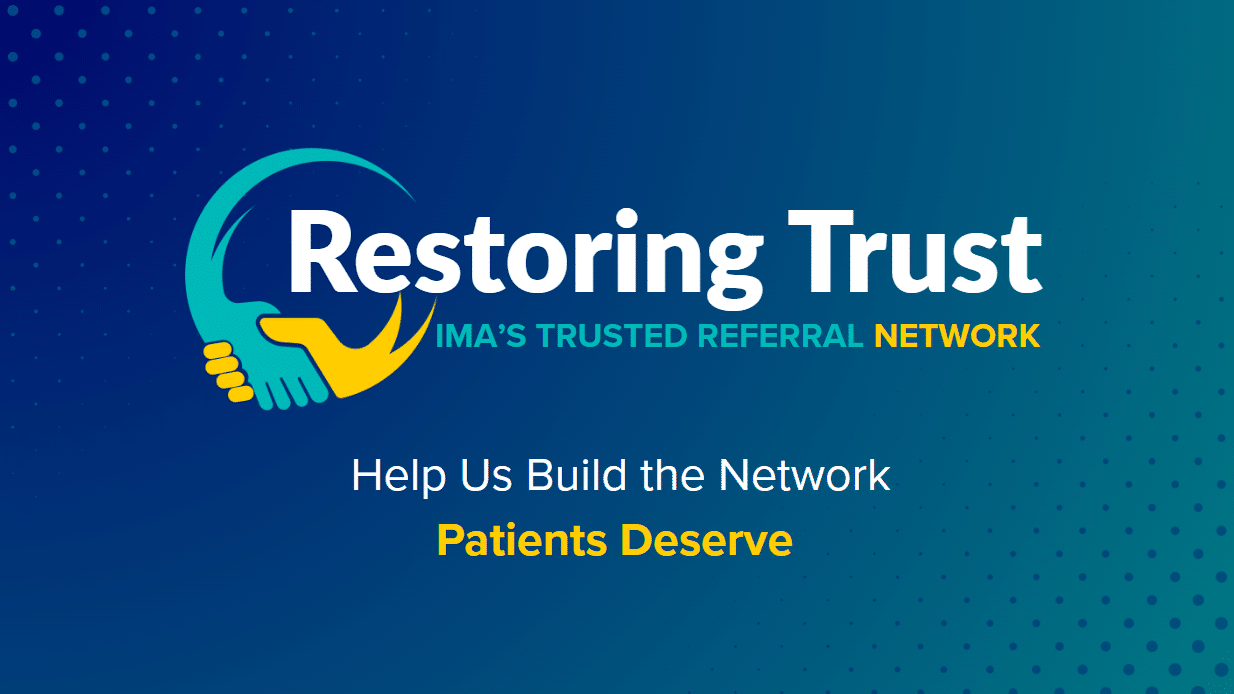Drinking more water but still feeling tired, crampy, or foggy? Learn why electrolytes—not just hydration—are essential for energy, mood, and balance.

We’ve all heard it: drink more water. But what if water alone isn’t enough? If you’re staying hydrated yet still struggling with fatigue, muscle cramps, dizziness, or brain fog, the real issue may be a lack of electrolytes.
That’s why IMA Senior Fellow Dr. Kristina Carman created this straightforward guide to understanding electrolytes—what they are, why imbalances are so common, and how to restore mineral balance without turning to sugary sports drinks. From functional health insights to practical, food-first strategies, this resource is designed to help you feel more energized, clear-headed, and resilient.
Download the full PDF guide below to learn how to support hydration, energy, and recovery with real food and smarter strategies.
Electrolytes: Why These Tiny Minerals Have a Massive Impact on Your Health
In the wellness world, we often hear about the importance of hydration—“Drink more water!”—but what if I told you that water alone isn’t enough? As a functional and naturopathic doctor, I see this time and again: people may be drinking more water, yet still feeling fatigued, dizzy, crampy, or even anxious.
The missing piece? Electrolytes.
Let’s break it down — and explore why these tiny charged minerals are essential for energy, mood, and overall health.
What Are Electrolytes, Really?
Electrolytes are minerals that carry an electric charge when dissolved in water. They’re not just “sports drink” marketing jargon — they’re biological essentials. The main electrolytes include:
- Sodium
- Potassium
- Magnesium
- Calcium
- Chloride
- Phosphate
- Bicarbonate
These minerals help regulate critical body functions:
- Nerve signal transmission
- Muscle contraction (including your heartbeat)
- pH balance and acid–base regulation
- Fluid balance inside and outside of cells
- Nutrient absorption and waste elimination
In short: if your electrolytes are imbalanced, nothing in your body works quite right.

Why Electrolyte Imbalance Happens — and Why It’s So Common
Electrolyte deficiencies aren’t just reserved for athletes. They’re surprisingly common due to:
- Chronic stress – Increases electrolyte excretion, especially magnesium and potassium
- Caffeine and alcohol – Act as diuretics, leading to fluid and mineral loss
- High-sweat exercise or sauna use – Depletes sodium, potassium, and magnesium
- Low-salt or ultra-clean diets – Can go too low in sodium, especially for active people
- Gut health issues – Diarrhea, vomiting, or malabsorption reduce mineral stores
- Medications – Diuretics, blood pressure meds, and antacids can deplete electrolytes
Signs Your Electrolytes Might Be Off
Even a mild imbalance can cause symptoms such as:
- Muscle cramps or twitching
- Dizziness or lightheadedness
- Fatigue that doesn’t improve with sleep
- Headaches or migraines
- Brain fog or irritability
- Irregular heartbeat or palpitations
- Poor recovery from workouts

Electrolytes and Functional Health: More Than Just Hydration
Electrolytes are foundational to:
- Adrenal support – Stress depletes sodium and potassium, impacting energy
- Thyroid function – Electrolyte balance affects hormone sensitivity
- Blood sugar regulation – Magnesium supports insulin and glucose transport
- Hormonal balance – Electrolyte shifts impact fluid retention, especially in perimenopause
- Detoxification – Minerals support bile flow, kidney function, and cellular transport
Wait — Can’t I Just Drink a Sports Drink?
Short answer: not really.
Most conventional sports drinks contain:
- Excessive sugar – Similar to soda, harmful to blood sugar and metabolism
- Artificial colors – Linked to hyperactivity, neuroinflammation, and more
- Preservatives and synthetic flavorings – Can increase toxic load and irritate the gut
From a functional medicine lens, these drinks often do more harm than good.

How to Support Electrolyte Balance Naturally
Start your day with minerals
A pinch of sea salt and a squeeze of lemon in water helps kickstart hydration, especially after fasting overnight.
Eat mineral-rich whole foods
- Potassium: Avocados, sweet potatoes, bananas, spinach, coconut water
- Magnesium: Pumpkin seeds, dark chocolate, leafy greens, legumes
- Sodium: Use sea salt or Himalayan salt mindfully in cooking
- Calcium: Sardines, tahini, almonds, kale
Reach for natural hydration boosters
- Coconut water (unsweetened)
- Watermelon juice + sea salt
- Mineral mocktail with citrus + sea salt
- Herbal infusions like nettle or hibiscus
Try this DIY electrolyte drink
Natural Electrolyte Drink Recipe
- 2 cups filtered water
- Juice of ½ lemon or lime
- ⅛ tsp sea salt or Celtic salt
- 1 tsp raw honey or a few slices of fresh pear or apple
- Optional: splash of coconut water or trace mineral drops
Stir well and sip throughout the morning or post-workout.
Supplement mindfully
Use clean electrolyte powders or capsules with no sweeteners, dyes, or fillers. Look for ones that include magnesium, potassium, and trace minerals.
Mind your gut
If you’re losing minerals due to digestive issues or poor absorption, a gut-healing protocol may be necessary.
Final Thoughts: Electrolytes Are Foundational, Not Optional
In functional medicine, we don’t just chase symptoms—we strengthen the terrain. And the terrain doesn’t function without minerals.
So next time you’re reaching for water, remember: it’s not just how much you drink—it’s what’s in it that matters.
Stay hydrated, stay mineralized — and thrive.




